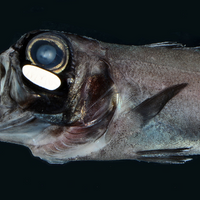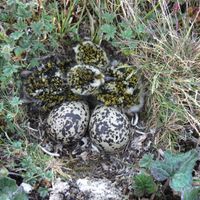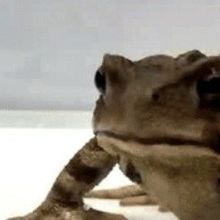Login
Subscribepredator-prey

How Rising Temperatures Affect Ocean Predation
Andy Carstens | Jun 9, 2022 | 3 min read
A study yields insights into how predator-prey dynamics may shift with climate change, but many questions remain.

Some Bats Buzz Like Hornets to Deter Predators
Natalia Mesa, PhD | May 9, 2022 | 2 min read
The behavior is the first example of a mammal mimicking a more-dangerous species.

Voles Trim Tall Grass to Prevent Attacks
Natalia Mesa, PhD | Mar 14, 2022 | 2 min read
Mongolian rodents join the ranks of earthworms and beavers as known ecosystem engineers.

Making Waves and Avoiding Beaks
Chloe Tenn | Dec 23, 2021 | 5 min read
Moving collectively on the water surface could help protect schools of fish from being eaten by predatory birds.

Some Mammals May Use Specialized Hairs to Detect Predators’ Heat
Amanda Heidt | Dec 16, 2021 | 2 min read
When observed under a microscope, guard hairs from mice resemble optical sensors used in thermal cameras to detect heat, according to a new study.

Male Snakes Cannibalizing Females Present Evolutionary Puzzle
Chloe Tenn | Nov 15, 2021 | 4 min read
The Scientist speaks with organismal biologist Xavier Glaudas about possible reasons for his recent finding that male Montpellier snakes cannibalize female conspecifics.

Few Car Crashes with Deer in Wisconsin, Perhaps Thanks to Wolves
Jef Akst | May 25, 2021 | 2 min read
In areas where gray wolf populations have grown, motorists have fewer collisions with deer, likely due to the predators keeping deer away from roadways.

When Pursuing Prey, Bats Tune Out the World
Lisa Winter | May 1, 2021 | 2 min read
As they close in for the kill, the flying mammals use quieter echolocation to focus on the chase.

Slideshow: How Ecologists Study the World’s Apex Predators
Katarina Zimmer | Nov 1, 2020 | 4 min read
A global decline of large carnivores has motivated scientists to understand the animals’ ecological roles, and consider whether reintroducing them can help restore ecosystems.

Can Rewilding Large Predators Regenerate Ecosystems?
Katarina Zimmer | Nov 1, 2020 | 10+ min read
As some conservationists and researchers begin to return large carnivores to areas where they once roamed, scientists intensify efforts to study the ecological roles of predators.

Infographic: How Large Carnivores Sculpt Ecosystems
Katarina Zimmer | Nov 1, 2020 | 4 min read
The release of gray wolves in Yellowstone decades ago still stands as one of the few examples of a predator reintroduction, and the lessons learned continue to be debated. New projects aim to do it again.

Diving Beetle Adults and Larvae Dismember, Eat Tadpoles: Study
Catherine Offord | Jan 13, 2020 | 2 min read
The invertebrate predators prey on and lay their eggs near emerging tadpoles, potentially threatening the conservation of endangered frogs, researchers find.

Squirrels Listen to Birdsong for Safety Cues
Emily Makowski | Sep 5, 2019 | 2 min read
Eastern gray squirrels appear to ease up on vigilance behavior when the birds sound calm.

Image of the Day: Flashlight Fish
Nicoletta Lanese | Aug 21, 2019 | 1 min read
The bioluminescent Anomalops katoptron can coordinate its schooling behavior after dark.

Image of the Day: Plundered Plover
Jef Akst | Nov 9, 2018 | 1 min read
Nest predation of shorebirds that raise young in the Arctic are up threefold since the mid-20th century, and climate change may be to blame, according to a study.

Image of the Day: Beetle Escapes Toad’s Stomach
The Scientist Staff and The Scientist Staff | Feb 8, 2018 | 1 min read
The bombardier beetle forced its devourer to vomit it out by releasing explosive, toxic chemicals.
